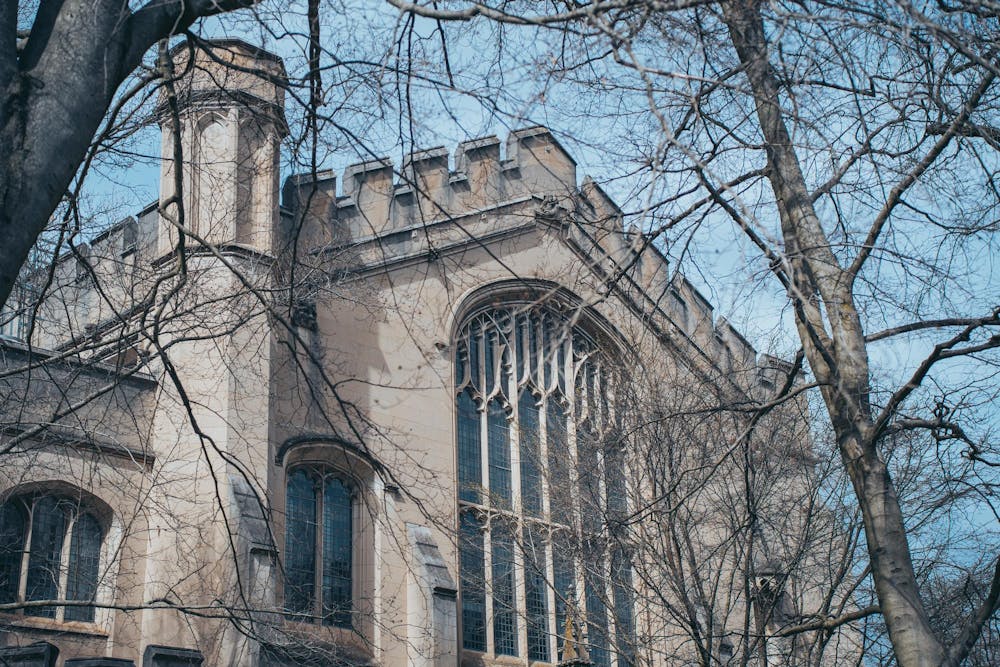On Nov. 20, the University announced a new multi-year Humanities Initiative which plans for a more robust system of collaboration on “shared intellectual projects,” both within the humanities departments and across other disciplines on campus. The initiative is a three-year project aimed at expanding into a Humanities Institute.
Professor in American Art and Chair of the Art and Archaeology department Rachael DeLue will direct the project. DeLue was chosen for this position due to her involvement in an advisory group discussing the future of humanities at Princeton.
“This is a moment when higher education, but also in certain sectors, the humanities, are under attack,” DeLue said in an interview with The Daily Princetonian. “Why be an English major? Why major in philosophy? Why study art history? There are really vital and valid reasons for doing these things, not necessarily to become a philosopher or an art historian or a novelist, but because they make us better humans.”
“A lot of campuses around the country and around the world have humanities centers or institutes,” DeLue said. “Princeton needs one, our students need one, the world needs Princeton to have one.”
Other members of the faculty steering group, a committee that DeLue formed to help launch the initiative, echoed its importance for the humanities more broadly.
“Humanity can do a lot of incredible things with the technical tools, the scientific tools, the computer tools that we have,” Jane Cox, a member of the faculty steering group and director of the Lewis Center’s Program in Theater & Music Theater, said in an interview with the ‘Prince.’ “But when wielded with the best of intentions in the world, without an understanding of the context within which they’re wielded, even the most extraordinary tools can be potentially dangerous, or they can be wielded in incredibly inequitable ways.”
Regarding the initiative’s long-term goals, DeLue and other project collaborators hope interest in the initiative will help facilitate a new, permanent entity for collaboration called the Humanities Institute.
The Humanities Initiative project as a whole was inspired by a University strategic planning process report, which voiced commitment to the humanities and interdisciplinary studies as some of its commitments. In addition to boosting the humanities program at Princeton, DeLue and collaborators hope that this initiative will spark new interest in the pursuit of the humanities.

“Princeton, as an institution, said, ‘Now is the time to double down and lean into the humanities,’” DeLue said. “As an institution, they are essential to humanity, and we can set the tone for the larger landscape of higher education.”
A formal interface has not yet been established for the project, as the initiative is still in the planning stage. Project organizers plan on basing future programs on the success they see in aspects of the inaugural program.
“Media and meaning” is the inaugural program in the Humanities Center’s efforts to increase interdisciplinary cooperation. According to DeLue, the theme was chosen due to its applicability and relevance to a wide number of fields and to begin an important societal conversation.
“We’re in a moment where we’re thinking a lot about media,” DeLue said, specifically referencing social media, the Internet, journalism, and artificial intelligence. “Media is at the center of our lives as humans, and it plays a pretty big role in how we experience the world.”

DeLue said that this project will seek to understand what it means to be human in the digital age among rapidly developing technology.
“There’s been such a chaotic transformation and how information is shared in the last few decades,” Cox added. “And it seems clear to me that, as a species, we’re struggling to catch up with how information is shared, how meaning is disseminated within our cultures, and so focusing on trying to understand how media and meaning are connected is crucial.”
This initiative also hopes to partner with local community colleges and K–12 schools for events and workshops to uphold public humanity as “another major pillar of this initiative,” according to DeLue.
“With initiatives like this, it’s very important that it’s coming from the ground up,” said Benjamin Morrison, chair of the philosophy department and another member of the faculty steering group, in an interview with the ‘Prince.’ “In other words, what really makes something like this work is the collaboration between actual people … you can’t say from the start, ‘you have to collaborate this way or that way.’ It has to be organic.”
The faculty steering group will meet for the first time on Friday, Dec. 20.
Devon Rudolph is a News and Sports contributor for the ‘Prince’ from Fairfax, Va.
Please send any corrections to corrections[at]dailyprincetonian.com.








